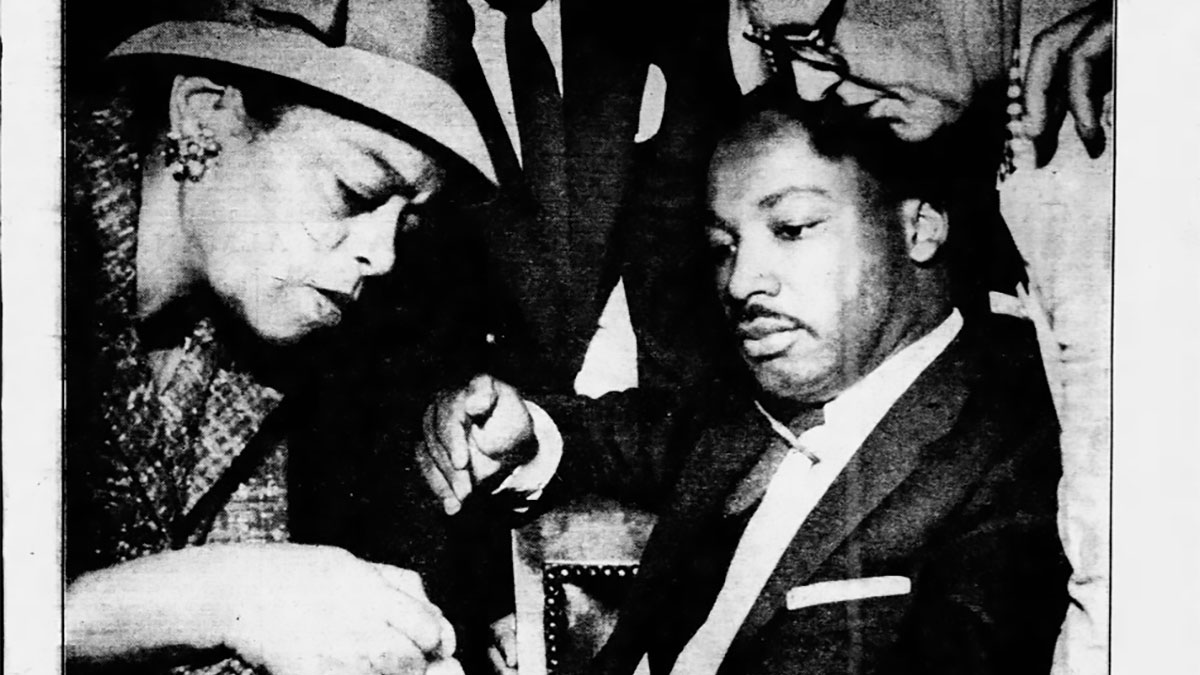
Sept. 20, 1958

Martin Luther King Jr. was stabbed in New York City.
King was signing his first book, his account of the Montgomery Bus Boycott, “Stride Toward Freedom,” when a well-dressed woman shouted, “Is this Martin Luther King?” King, then 29, answered, “Yes, it is.”
The woman, Izola Curry, who was later diagnosed as suffering from schizophrenia, walked up and stabbed him with a 7-inch knife. Patrolman Al Howard kept a bystander from removing the blade, which might have killed him.
“X-rays revealed that the tip of the blade was on the edge of my aorta, the main artery,” King later recalled. “Once that’s punctured, you’ve drowned in your own blood.” Surgeons operating on the civil rights leader said, “Had Dr. King sneezed or coughed, the weapon would have penetrated the aorta.… He was just a sneeze away from death.”
King was rushed to the Harlem Hospital, where one surgeon arrived in a tuxedo because he had been summoned from a wedding. During the four-hour surgery, King had two ribs and part of his breast plate removed. He was quick to forgive his would-be assassin, who was the Black daughter of sharecroppers.
“A climate of hatred and bitterness so permeates areas of our nation that inevitably deeds of extreme violence must erupt,” he told reporters. “The experience of these last few days has deepened my faith in the relevance of the spirit of nonviolence, if necessary social change is peacefully to take place.”
In his last sermon before his assassination, King recalled a letter he received then from a ninth-grade student, who happened to be white: “I read that if you had sneezed, you would have died. And I’m simply writing you to say that I’m so happy that you didn’t sneeze.”
The crowd stood and applauded. “I want to say tonight that I, too, am happy that I didn’t sneeze,” King continued. “Because if I had sneezed, I wouldn’t have been around here in 1960, when students all over the South started sitting in at lunch counters. … If I had sneezed, I wouldn’t have been down in Selma, Alabama, to see the great movement there. If I had sneezed, I wouldn’t have been in Memphis to see a community rally around those brothers and sisters who are suffering. I’m so happy that I didn’t sneeze.”

